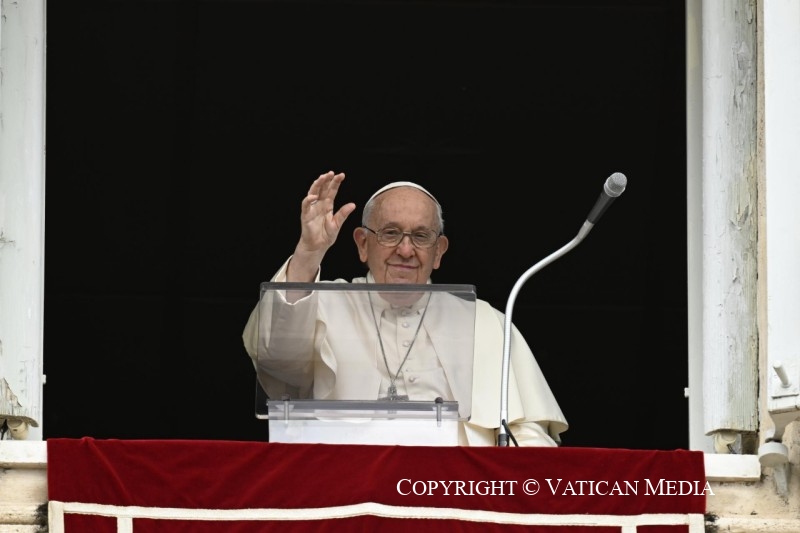Dear brothers and sisters, buongiorno!
Today the Gospel speaks to us about fraternal correction (cf. Mt 18:15-20), which is one of the highest expressions of love, and also one of the most demanding, because it is not easy to correct others. When a brother in faith wrongs you, then you, without rancour, help him, correct him: help by correcting.
Unfortunately, however, often the first thing that is created around those who make a mistake is gossip, in which everyone comes to know the mistake, complete with details, apart from the person concerned! This is not right, brothers and sisters, this does not please God. I never tire of repeating that gossip is a plague on the life of people and communities, because it leads to division, it leads to suffering, it leads to scandal; it never helps improve or grow. A great spiritual master, Saint Bernard, said that idle curiosity and superficial words are the first steps on the ladder of pride, which does not lead upwards, but downwards, plunging man towards perdition and ruin (cf. The twelve steps of humility and pride).
Instead, Jesus teaches us to behave in a different way. This is what He says today: “If your brother sins against you, go and tell him his fault, between you and him alone” (v. 15). Speak to him about it “face to face”, speak about it fairly, to help him understand where he has erred. And do this for his own good, overcoming shame and finding true courage, which is not to slander, but to tell him to his face with meekness and gentleness.
But we might ask, what if this is not enough? What if he does not understand? Then we must look for help. Beware, though: not from the group that gossips! Jesus says: “Take one or two others along with you” (v. 16), meaning people who genuinely want to lend a hand to this misguided brother.
And if he still does not understand? Then, Jesus says, involve the community. But here too, this does not mean to pillory a person, putting him to shame publicly, but rather to unite the efforts of everyone to help him change. Pointing the finger is not good; in fact, it often makes it more difficult for the wrongdoer to recognize his mistake. Rather, the community must make him feel that, while it condemns the mistake, it is close to the person with prayer and affection, always ready to offer forgiveness, understanding, and to start over.
And so, let us ask ourselves: how should I behave with a person who wrongs me? Do I keep it inside and accumulate resentment? “You will pay for it”, those words which come so often: “you will pay for it…”. Do I talk about it behind their backs? “Do you know what he did?”; and so on… Or am I brave, courageous, and do I try to talk about it to him or her? Do I pray for him or her, ask for help to do good? And do our communities take care of those who fall, so that they can get back up and start a new life? Do they point their fingers or open their arms? What do you do: do you point the finger or open your arms?
May Mary, who continued to love even as she heard people condemn her Son, help us to always seek the path of good.
Source: vatican.va





